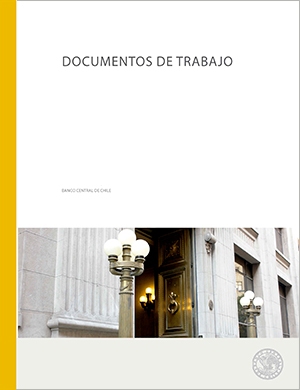Working Papers N° 59: Capital Controls in Chile: Effective? Efficient?
Publications
Working Papers N° 59: Capital Controls in Chile: Effective? Efficient?
Autor: Francisco Gallego , Leonardo Hernández
Description
New empirical evidence with regards to the effectiveness and efficiency of Chile’s capital controls is provided here, based on more and better data on the range of controls and a broad assessment of their costs and benefits. The paper concludes that capital controls have been partially effective by raising the wedge between domestic and foreign interest rates, reducing aggregate net capital inflows, and changing the debt composition toward longer maturities, without significantly altering the real exchange rate. Part of these effects is temporary as the effectiveness of controls is eroded over time for a given interest rates differential. Controls may have been crucial by contributing to Chile’s lower exposure to short-term foreign liabilities at the time of the 1997-98 international financial turmoil. However, achieving temporary macroeconomic benefits by relying on capital controls involves incurring in financial and growth effects that raise concerns about their efficiency. The costs that resulted from the policy mix that comprised the capital controls, in terms of quasifiscal losses and lower investment and growth, were probably not negligible.
Working Papers N° 59: Capital Controls in Chile: Effective? Efficient?
Boxes and graphics

